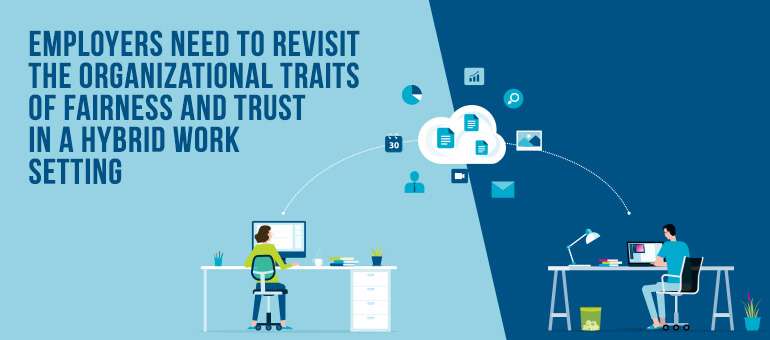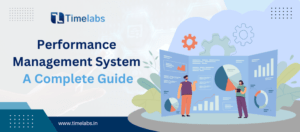There is no denying the fact that hybrid work models will become the norm in the near future, as reported by a wide range of businesses. There are several advantages for both employers and employees to adopt hybrid approaches, including the capacity to recruit and retain the finest talent and the flexibility to provide employees with a variety of options.
Sustaining strong team cultures, optimism, and camaraderie, as well as guaranteeing fairness and equality in both reality and perception, will be a challenge for hybrid working arrangements. The ability of an organization to function effectively is directly related to its ability to foster a strong feeling of shared purpose and justice.
The Critical Role of Trust
While developing trust is not simple, it is precisely what employees want and desire from their companies during difficult times. Employers should be well advised to foster this relationship of mutual respect and confidence. Due to the increasing importance of concerns like as workplace trust and fairness, particularly in a hybrid workplace, many firms are reevaluating their management of employees in regards to benefits and other concerns. For instance:
- How much paid sick leave should you provide your remote workers?
- How much flexibility do on-site staff have in terms of scheduling?
- How do you deal with compensation concerns for workers who live in places where the cost of living is significantly higher than in other areas?
- How can you make sure that employees who work from home stay productive?
Building Trust and Ensuring Fairness through Practical Approaches
If an organization wants to be successful in the long run with a hybrid workforce, it must be able to make significant adjustments in three key areas: administration, workforce, and organizational procedures managing a distant workforce and carrying out work from a remote place both require equipment and resources from employers. Workflows must also be revised in order to facilitate the timely completion of projects. Here are a few things to keep in mind:
Start from the Top
It’s critical that business owners and HR work together to help managers establish and reinforce a culture of trust across the organization. Business executives need to be open, honest, and able to change their minds. By exhibiting empathy, kindness, and keeping open channels of communication accessible, leaders may sustain their credibility. Preventing disinformation and rumors from spreading may be done by actively communicating with the staff.
Consider Your Paid Leave Policies in a New Light
Employees at certain companies are being required to take a set amount of vacation time each year in order to maintain a healthy work-life balance and promote emotional well-being. It’s a common belief among businesses that all workers, whether they’re based in the office or working remotely, should be entitled to the same amount of paid vacation time.
Maintain Transparency in Your Productivity Tracking
Employee productivity may be monitored utilizing a variety of digital tools and software solutions. Before beginning to monitor workers, corporate leaders must explicitly establish goals and precise objectives, as well as take into account concerns of business practices, confidentiality, and information security, in order to retain confidence and fairness.
Be Conscious of Equity When Making Pay Decisions
Employees’ worries about fair compensation in a mixed work environment are a serious issue. For example, if a business employs remote staff in US and UK, how can you ensure that they are paid properly for the same work? There must be a system in the organization where all the in-house, as well as remote working employees, are paid off equally as per the work delivered by them.
Conclusion
Despite the continuing epidemic and economic instability, HR concerns like developing culture, re-evaluating policy fairness, and developing trust may seem easy to overlook. However, employers must act immediately to protect faith if they hope to recruit and keep their finest employees.



